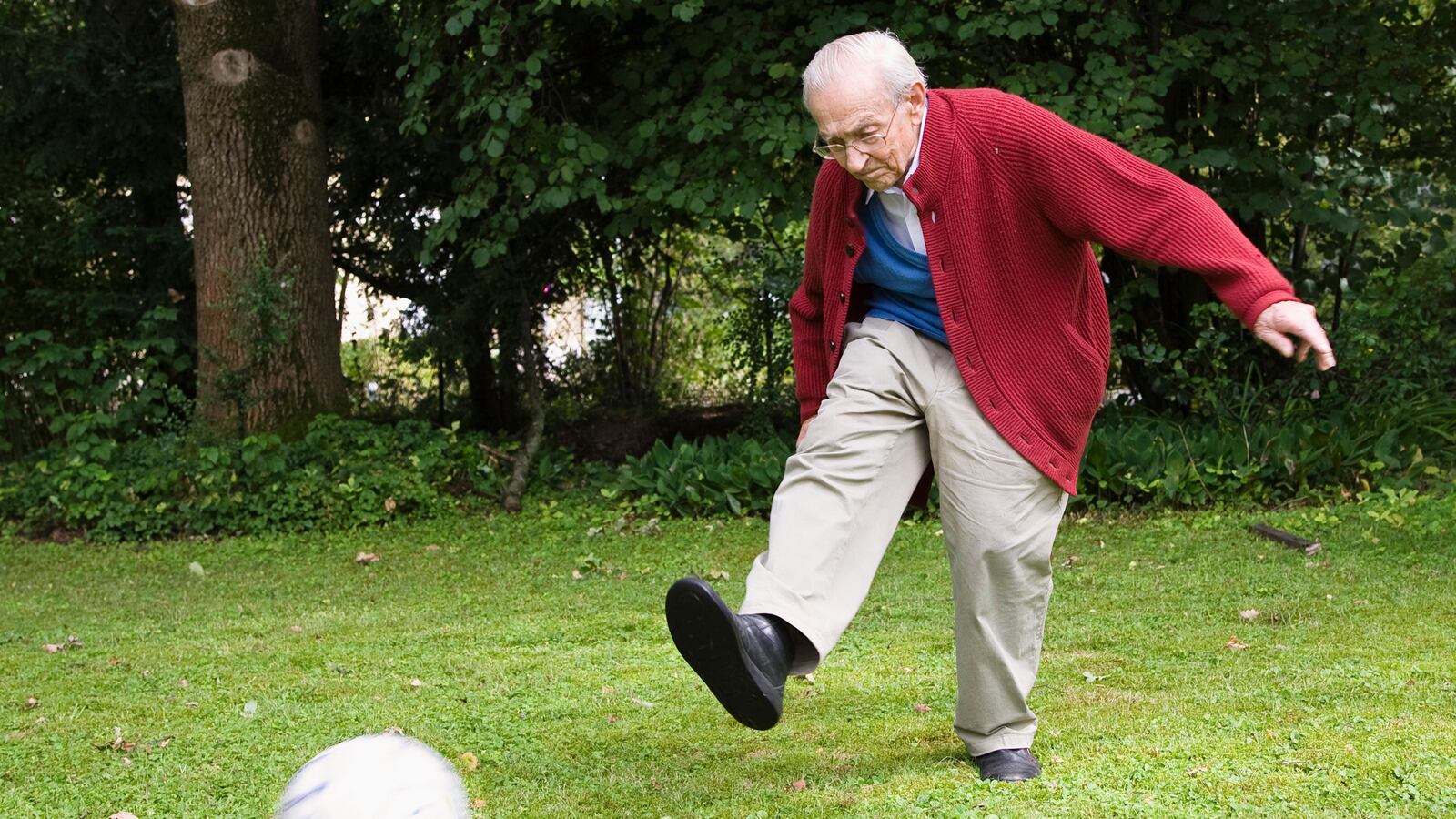Maybe Betty White isn’t so unusual after all.
The 91-year-old actress (that’s nearly four times older than Miley Cyrus, for those keeping track), is famously energetic, even in the seventh decade of her career.

There’s also a breakdancing, water-skiing grandpa, if you can believe it. But typically, when compared to a vibrant teen, most would suspect the energy levels between the generations wouldn’t even come close. And they would be wrong.
In an unprecedented study published in the Journals of Gerontology Series B comprised of nearly 13,000 Americans, senior citizens—specifically those 80 years and older—recorded feeling less tired than young people between the ages of 15 and 24.
“I was shocked. It was very weird and unusual,” says Laura Kudrna, a co-author of the study.
The study began in 2010, when the U.S. Census Bureau asked the group of selected Americans (between ages 15 and 85) to fill out their own personal “activity diary.” A researcher then asked how they felt physically and emotionally during three random activities recorded. As opposed to previous theories, tiredness decreased as respondents got older. According to the study’s abstract, people who are more than 65 years of age are almost one point on a 0—6 scale less tired than people aged between 15 and 24. (The scale was zero to six, with six meaning “very tired.”)
After assessing the diaries, Kudrna brought the data to her colleague, Paul Dolan, and he immediately recognized the uniqueness in the findings. “That’s it. That’s what we focus on,” Kudrna recalled him saying.
The findings are indeed fascinating, but Kudrna is careful not to allow any easy inferences. You might suggest, for example, that younger people would feel more tired because they recorded more activities like school and homework, while people over the age of 80 had more leisure time, like watching TV. However, the study can’t support the relationship based on this data, Kudrna says. The correlation between tiredness and activity is not proven—at this juncture, anyway.
Rather, “the data is a snapshot of how tired people in the U.S. reported they were. But what accounts for that difference is a totally different question,” she said. “We’re not saying that age causes tiredness. What we’ve found is a snapshot of how tired people said they felt in their diaries and how that looks compared to age.”
Dr. Barbara Greenberg, a teen clinical psychologist, therapist, and counselor, was not at all shocked to hear of the study. She believes tiredness is linked to anxiety levels. “We know that teens are plagued with anxiety these days because of all the pressures. In fact, in college, the No. 1 factor that leads students to go to counseling services is anxiety,” she said. “Anxiety is very depleting and really drains our use of energy, but it decreases with age—it’s the one good thing about getting older!”
Also, getting discounted movie theater tickets.
Then, there’s sleep deprivation, which “we know the 15- to 24-year-old group are dreadfully sleep deprived,” Greenberg said. “Their day never ends, and if your day never ends you’re low on energy.” Maybe it’s that simple.
But, again, these are all speculations in the aftermath of the study. And that’s something of concern in itself. “It really concerns me that older people are less tired than younger people because we don’t have longitudinal evidence on this,” Kudrna said. “It could very well be the case that it’s not just age that’s affecting this but society. Clearly, it’s a complicated issue.”
So until more research is conducted, don’t underestimate the power of your grandparents (literally).





